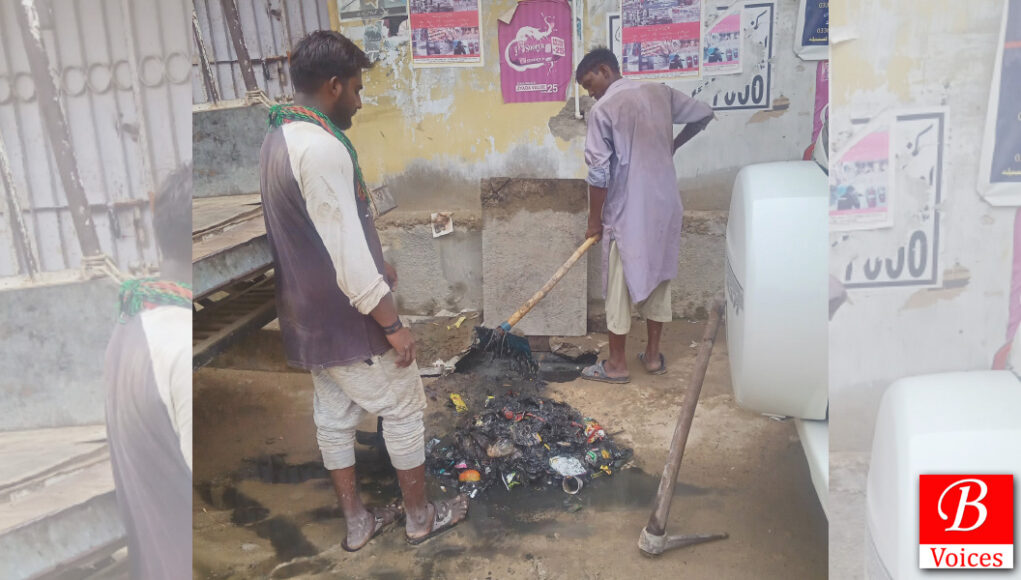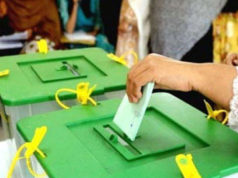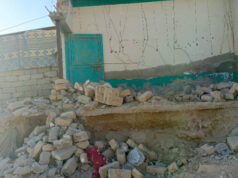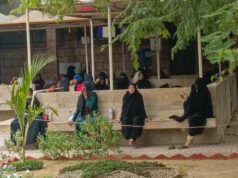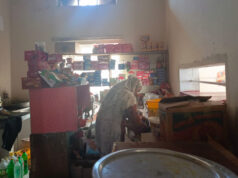Ayaz Khan
James wakes up as early as 4:00 am in morning in order to clean up Firdos Colony. As usual, he cleans up all the streets which lie in his area.
The Supervisor, who looks after workers, marks a certain limit for one or two sanitation workers, and they are responsible for the cleanliness of the market area. Hence, as directed by his supervisor, James does his job honestly. That is why residents, like his supervisor, are happy with Jame’s work.
Hub, Balochistan’s industrial city, has a total population of more than 200,000, according to the latest census 2017.
In Hub, It’s an arduous task for Fazal Maseeh* and the team, backed by some daily wage workers, to maintain the cleanliness of the city, despite the fact that there is a big gap between workload and the workforce. Additionally, the sanitation workers, including James and Maseeh, confront big discrimination in the shape of the burden of workload.
“We are burdened with much workload. We, permanent workers, cannot cope with the work because we are a small workforce,” says Fazal*.
Fazal* looks after the cleanliness work in the city. He has to look after any sort of discrimination happening with team members. After completing the cleanliness work, they have to mark their attendance at 9:00 am in the Municipal Corporation. Later on, they receive the complaints and their work continues till 5:00 pm in the evening.
Religious minorities constitute 4 percent of the total population of the country. The exact estimation of the Christian population is not known. However, it’s estimated to be between 2 to 3 million which makes up only 1.6 % of the total population of the country. An exact estimation about the number of Christians residing in Balochistan province is not known owing to a lack of data availability. To guess about the plight of the Christian workers, discrimination is always unleashed on sanitation workers (sweepers) at workplaces, which begins from the starting point. According to a report, the majority of the Christian minority members are uneducated and are limited to sanitation work where they face discrimination on the basis of their social status.
James’s wife has the burden of cleaning up 7 streets and the main road of the city. “We are left to die,” says James’s wife. “I work until 1 pm, and I have to get up at 3 am in the morning and my husband works until 5 pm in the evening.”
Lack of health facilities and equipment at the workplace
In 2020, a report highlighted the plight of sweepers working in the metropolitan city, Karachi. The report highlighted fateful and hazardous working conditions in which sweepers worked. The sweepers worked in unhygienic conditions without having any equipment which could help the sweepers avoid exposure to fatal diseases like Hepatitis C.
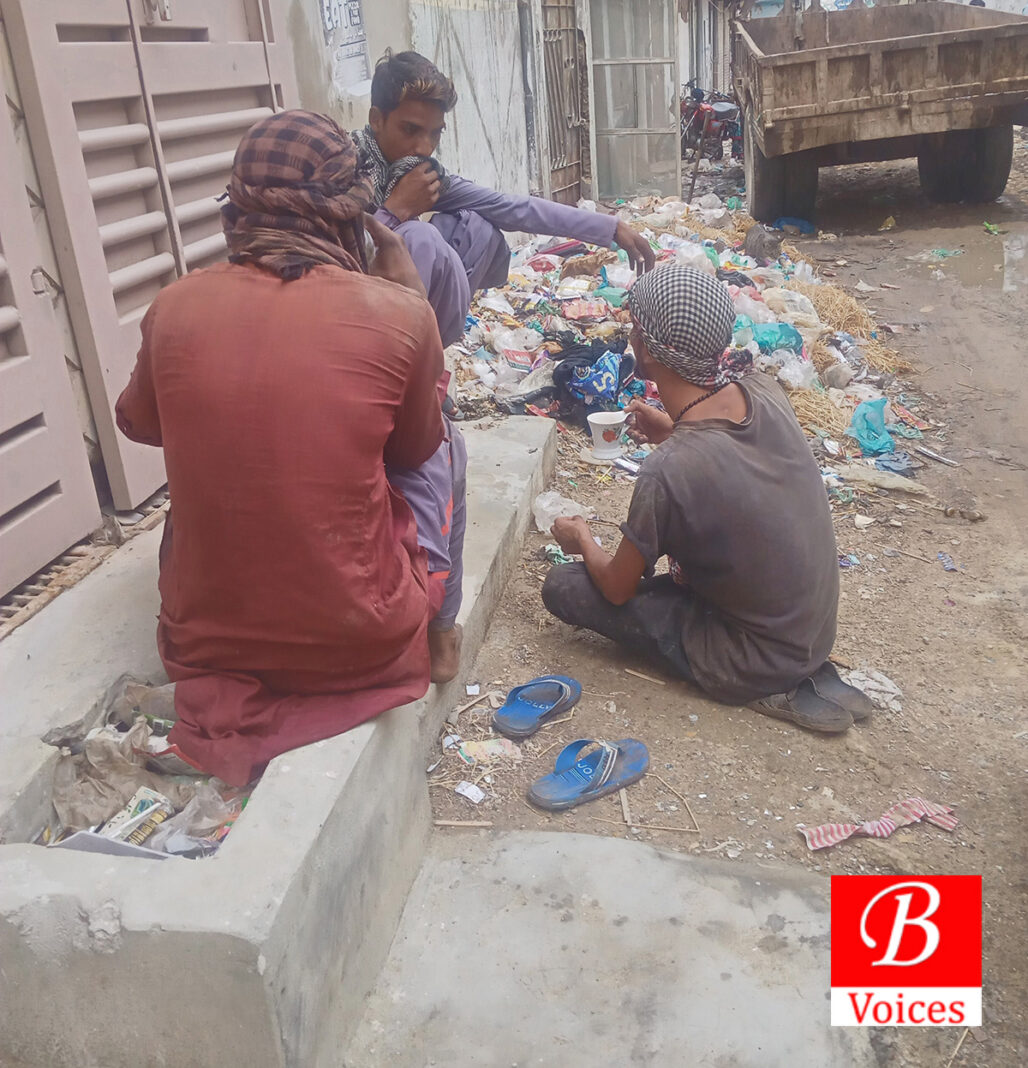
The sanitation workers (sweepers) in Balochistan work under similar unhygienic conditions. Lack of safety equipment pushes the sanitation workers to work in gutters and sewage lines while exposing themselves to hazardous diseases.
“We are not provided with any safety equipment. We dive into gutters, to take out sewage. And we do it on the cost of our health,” says a sweeper on the condition of anonymity while keeping job security in view.
Shezan Williams, a minority rights activist based in Quetta, believes that the issue is not confined to Balochistan only.
“I have been traveling to different provinces. If you survey all the provinces, you find that none of the sanitation workers is given basic equipment to prevent themselves from unhygienic working conditions. They plunge into dirty gutters to clean up those without any safety gears and I believe that this is like playing with lives,” says Mr. Shezan Williams said while stressing the need for availability of health safety equipment at workplaces.
Implementation of 5 percent quota
Following the judgment passed by Justice Tassaduq Hussain Jillani in 2014, it was much anticipated that the minorities would get their due share in jobs. However, the implementation of a 5 % quota remains abysmal.
“The situation is ‘worst’ here (in Khuzdar). Since 2008, there have been ‘no inductions in the corporation,” claims one of the community members while requesting not to be named.
Afzal Maseeh*, an influential community member, claims that the number of permanent employees in the corporation is lower than the actual number needed. “We face much discrimination. Who says there have not been inductions. There have been inductions but not from our community. Others have been inducted as sweepers but they have never been seen working,” Mr. Afzal* claims.
The claim couldn’t be verified independently as Tehsil Municipal Officer was not available for comments. However, in a video report of Balochistan Voices on the implementation of the 5 percent quota, the government has ensured that the 5 percent quota is fully implemented but the official regrets that unemployment ratio is too high in the province.
No medicines for employees
Williams*, 45, is a permanent employee at Municipal Corporation Hub. He is engaged in ‘wet sweeping’, removal and disposal of urine and feces. This exposes Williams* too many health risks but his health is not a priority for anyone.
“Once, in the past, we used to get medicines (Panadol and dispirin) from a government hospital but now we even cannot get it,” Williams* regrettably tells, while adding that: “not to speak of receiving medical panel from the corporation, we even do get a small allowance on the eve of our festivals. However, other employees get an allowance on the eve of Eid and other festivals.”
Peter Jacob, executive director of Centre for Social Justice, an advocacy group based in Lahore, sees the issue as a lack of institutional capacity.
“The issue is from the top (governing) not at the grassroots. There is a lack of capacity to govern institutions. Had municipalities been good, the cities would not have become a heap of garbage,” Mr. Peter explains, concluding. “Discrimination exists in many forms ranging from religion to low wages. There is a capacity-building need that is required in institutions.”
* Names of the people changed to protect their privacy.
Share your comments!


